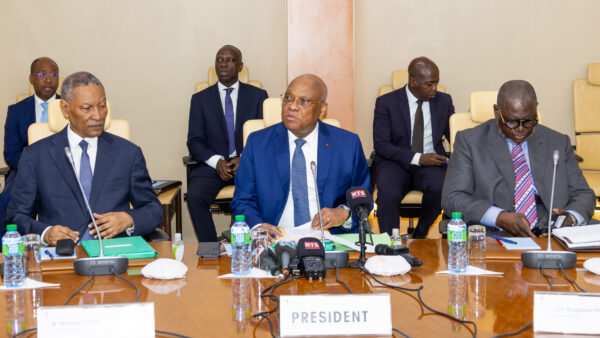The third meeting of the Monetary Policy Committee (MPC) of the Central Bank of West African States (BCEAO) for the year 2025 opened on Wednesday, September 17 in Dakar (Senegal), under the chairmanship of Jean-Claude Kassi Brou. The discussions focus on the report on monetary policy in the Union, with an examination of the recent evolution of the international and domestic economic environment, growth prospects, and short- and medium-term risks.
In his opening speech, the governor provided an overview of the global economic situation, highlighting the strong uncertainties related to the imposition of new tariffs between the United States and its trading partners. However, he noted that the global economic outlook for 2025 and 2026 should be more favorable, thanks to agreements providing for lower effective tariffs than initially envisaged.
Regarding the West African Economic and Monetary Union (UEMOA), economic activity remained strong in the second quarter of 2025, with real GDP growth of 6.5% on an annual basis, after 7% in the previous quarter. For the year as a whole, the Ivorian stated that growth should reach 6.3%, the same level as in 2024, driven by strong demand and the dynamism of the oil, gas, and agricultural sectors.
Inflation continued to decline in the second quarter, standing at 0.6%. This decrease is explained in particular by better supply in local markets, the easing of prices of imported goods, and the decrease in fuel prices at the pump in some countries in the Union.
On the external front, the BCEAO specifies that accounts improved in the first half of 2025, although risks persist due to international uncertainties that could deteriorate the terms of trade. Furthermore, monetary market conditions have eased, supported by sufficient liquidity in the banking system and the recent decrease in key interest rates.
During the meeting, participants will need to examine in detail the report on the Union’s monetary policy, prepared by the BCEAO’s services. This document evaluates the recent evolution of the economy and identifies associated risks in order to propose appropriate monetary policy measures.
The agenda also includes the study of a request for eligibility for refinancing by the BCEAO of bonds issued by a banking institution. Other information points, such as the repatriation of operating revenues or the situation of the banking system in the area, could also be presented depending on the interest of the discussions.


